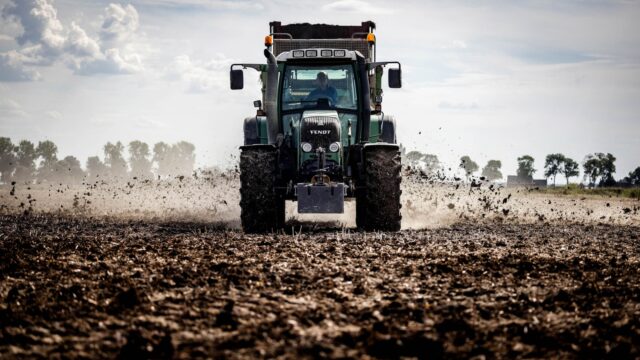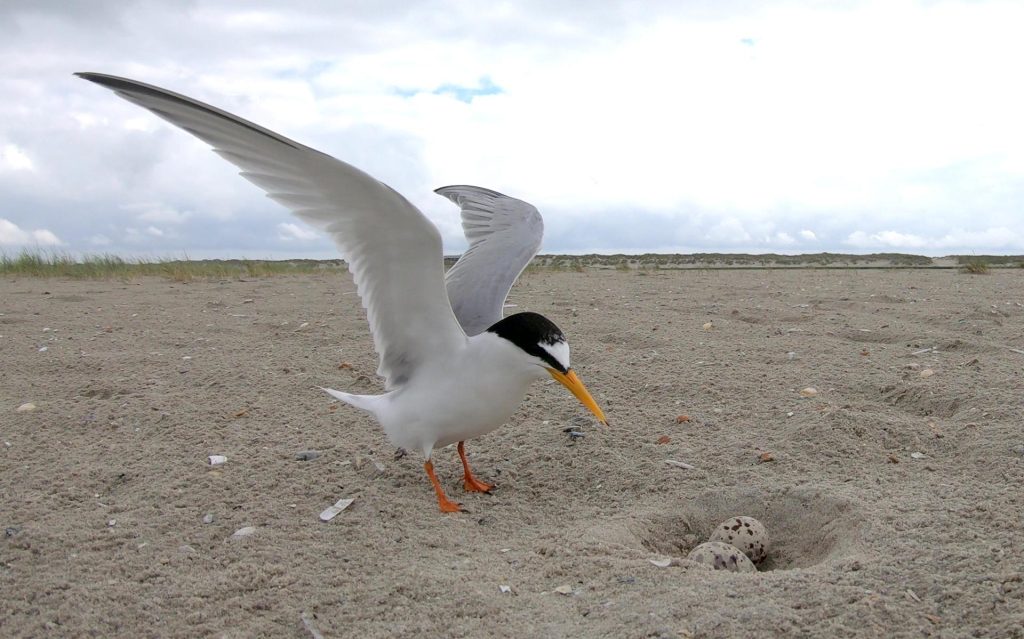Winter is a great time to breathe fresh air along Dutch beaches, where winds, flowing waters and drifting sand give us a natural sense of peace and space.
From early spring, in March and April, the wide shores of the Wadden Islands in particular become breeding grounds for sand plovers, Ringed plovers and the Doergestern . Good nest protection and streamers are essential to allow these beach nurseries to reproduce undisturbed.
breeding area
Beach brethren love bare sandy bottoms with shells in which they can easily make a nest. They prefer quiet places and where they can easily find their food. Ring plovers and ringed plovers are watch and pecking hunters. Their food consists of worms, shrimp, beach fleas and insects. Small terns eat small fish, such as sand eels and herring.
The beaches of the Wadden Islands belong to the Natura2000 “North Sea Coastal Zone”, which, among other things, should provide protection for these beach brothers. Their nests do not stand out. Their eggs are well camouflaged. But predation, disturbance and trampling are latent.
protection
Since 2017, the Ameland Beach between Nes and Hollum has been stripped to the beach brothers by the Ameland Nature Center on behalf of Rijkswaterstaat. Existing nests are protected by information panels, ropes and nest protectors.
Sand plovers are a southern heat-loving species that is widely distributed in Africa and breeds in the north. In the Netherlands, this species occurs only in the summer half of the year. Numbers in the Netherlands, and especially in the Wadden Islands, have fallen sharply to nearly zero in recent decades, mainly due to leisure pressures.
In 2021, sand pits only nested in Vlieland (8 nests) and Ameland (17 nests). In Ameland, 9 nests – a total of 30 eggs – hatched in part thanks to the nest keepers. About 10-15 young men ran away after about a month.
Ringed plovers
The ring plover is a northern species that winters in the southern regions. Some come to Holland in March to mate. Sometimes they breed twice a year, until July and then give birth to young until the end of August.
In 2021, a single nest of ringed plovers was found in Ameland. A nest protector was placed over this and two eggs were hatched. After a short while, no more young men were seen.
The number of small terns in the Netherlands fluctuates greatly. They are migratory birds that migrate along the coast in spring and fall or breed in the coastal region in summer.
In 2021, four nests of young terns were found in Ameland, close to each other. These are protected by banners and cord demarcation. All four nests were hatched, with a total of 11 eggs. It is unclear if any of the young men escaped.
Rust
Compared to a century ago, the number of beach brothers in Ameland, as in the rest of the Netherlands, has decreased significantly. This is mainly due to the lack of dynamic areas of pioneer habitat and increased recreational pressure.
Beach activities such as car rides, horse riding, kite surfing and especially walking with stray dogs seem to be a big problem. It disturbs both nesting birds and wandering young.
Good information, with clear markings and dog leash requirements on that part of the beach where beach brethren like to be, can help. In Ameland, this is the area between post 4 and post 9.
Nest protectors can help too, along with good maintenance and an awareness that birds and people can live perfectly together if you give each other space.
Rijkswaterstaat information board on Ameland Beach. Photo: Johann Kroll.
Signature from the Ministry of Infrastructure and Water Management / Rijkswaterstaat to protect beach brothers and their nests on Ameland Beach. Photo: Johann Kroll.
Resources
– Krol, J., 2021. Natura 2000 North Sea Coast Zone: Beach Brothers on Ameland. Season 2021. Edition: Ameland Nature Center.
– Van Beusekom, R. & S. Hartlief, 2019. Beach Brothers Support. Protect annular plover and baby tern. Publisher: Vogelbescherming Nederland. https://www.vogelbescherming.nl/docs/4ef5377c-ddd4-490a-8ebb-44ec0c6c6ce8.pdf

“Total coffee specialist. Hardcore reader. Incurable music scholar. Web guru. Freelance troublemaker. Problem solver. Travel trailblazer.”







More Stories
Toward a sustainable future: space exploration as a driver of terrestrial sustainability
“There is no scientific evidence for strict fertilizer standards in the Netherlands.”
Astronomers have discovered a new molecule in space. And it's very special